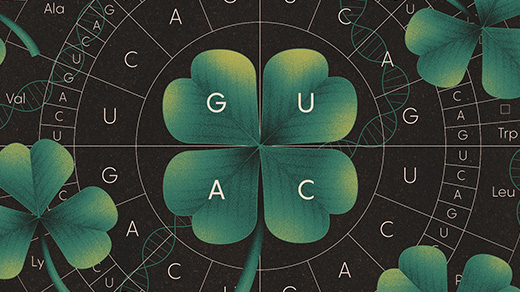Intriguing Possibilities Surrounding Extended Genetic Codes
Unveiling the Complexities of Extended Genetic Codes
The realm of genetics has always been a captivating subject, with its intricate web of DNA and RNA. Recent scientific advancements have sparked curiosity about the potential for longer genetic codes, opening up new avenues for exploration. However, while this concept may seem tantalizingly possible, it is essential to approach it with caution and acknowledge the challenges that lie ahead.
Navigating Through Uncharted Territory
Extended genetic codes hold immense promise in expanding our understanding of life’s building blocks. The idea that organisms could possess additional nucleotides beyond the traditional four—adenine (A), cytosine (C), guanine (G), and thymine (T)—is both fascinating and thought-provoking. Such an expansion could potentially unlock unprecedented possibilities in medical research, drug development, and even synthetic biology.
However, we must tread carefully as we venture into uncharted territory. Manipulating or introducing novel nucleotides brings forth numerous ethical considerations alongside technical challenges. Ensuring safety measures are in place to prevent unintended consequences is paramount before embarking on any ambitious endeavors involving extended genetic codes.
A Delicate Balancing Act: Benefits versus Risks
The allure of extended genetic codes lies not only in their potential benefits but also in recognizing the inherent risks they pose. While these expanded codes might offer groundbreaking solutions to previously incurable diseases or enhance our ability to engineer organisms for specific purposes, they also introduce uncertainties that demand careful evaluation.
We must be mindful that altering nature’s blueprint can lead to unforeseen complications or unintended ecological disruptions. Striking a delicate balance between scientific progress and responsible stewardship of our environment is crucial. Collaborative efforts among scientists, ethicists, and policymakers are essential to ensure that any advancements in extended genetic codes align with ethical principles and prioritize the well-being of both humans and the ecosystems we inhabit.
Concluding Thoughts: Nurturing a Responsible Approach
The realm of extended genetic codes holds immense potential for transforming various aspects of our lives. However, it is vital to approach this frontier cautiously, acknowledging the complexities involved. As we embark on this journey, let us foster an apologetic tone towards nature’s intricate design while striving for medical breakthroughs that benefit humanity without compromising our fragile ecosystem. By nurturing a responsible approach grounded in respect for life’s intricacies, we can navigate these uncharted waters with wisdom and compassion.

